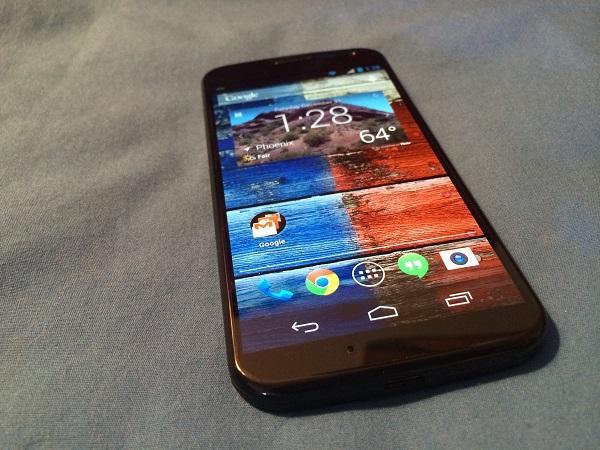I don't know about you, but I have a tendency to use my phone a lot right when I pull it out of the box. For the first week, couple of weeks or maybe even the first month --it all depends on the phone-- I'm just completely engrossed in the device itself, what it can do, and all the bells and whistles thrown in for good measure. Some devices from some manufacturers offer a lot to discover, especially when you dig into the settings, the options, and everything else you can toggle on and off, while others may offer just a simple, clean, and uncluttered approach that can still manage to win you over for quite some time if you're into that sort of thing. I love new technology, new devices, so when I do get my hands on something that's brand new (or new to me in general), I have a tendency to lose myself in it for an extended period of time.
It's a double-edged sword, to be honest. It's great while it lasts, no matter how long it lasts. Whether it's just a week or for a couple of months, that period of time is great. Even if there are things that I don't necessarily like about a new device, from aesthetic design choices to missing features or whatever else it might be, just the fact that it's new can usually tide me over long enough that I'll learn everything there is to learn about a device before I ultimately get rid of it. And by now you should know that I switch devices a lot, so no matter how much I like a device there's a strong chance that I'll let it sit on a table before too long.
The HTC One is a device that I loved, right when I took it out of the box and even a month or two down the road after I started using it. As far as I'm concerned, the One's the sleeper hit of the year, and HTC as a company deserved a lot more this year than they got. But, that's neither here nor there. The device itself earned plenty of praise, and it's still
winning the top spot on polls for "best phone" of 2013. It's also one of the only devices that I just keep going back to, randomly. I usually get rid of a phone that I stop using, but the One's stuck around. I thought it would be the only phone to accomplish that feat this year, but that's why Motorola's Moto X was so surprising to me.
When I use Android, I try to use all the things the platform offers that others don't. I've been using Google's mobile operating system ever since it launched, sometimes as the only mobile OS in my library of devices, and there's one thing that I've just used, almost by default, right from the get-go: widgets. I can still remember the feature being a definitive aspect to the mobile OS as a whole, and one reason why people clung to it so hard when compared to other operating systems in the market. Widgets were a game-changer back then, and they haven't gone anywhere.
At least, not in general. You'll still be able to find a laundry list of widgets available to you when you turn on a brand new Android-based device, thanks to all the stock apps present on the device. And if/when you download new apps from the Google Play Store, they'll come with widgets, too. It's rare to see an app come without a companion widget, for easy access on any one of your homescreens on your device, but even if a new app doesn't launch with one, it'll eventually get one. Just like Microsoft's OneNote application, which recently got updated to boast widget functionality as well.
I used to love widgets. I remember showing them off to everyone I could back when the original HTC Hero launched, and I could just skim through my Twitter feed right on my homescreen, rather than opening an app proper. And when more app functionality came down the pipe, and reading emails was as easy as posting a widget, my world seemed just about complete. Widgets were exactly what smartphones were missing, and thanks to Google here they were. Just like magic, or something.
I only have one widget on any one of my Android devices at this point, and it's the same across the board; from old to new handsets, from personal devices to handsets used for work, I only ever actually use one widget these days. The app itself changes quite a bit, but they always cover one thing: weather. Yep. The weather. It's the only widget I use anymore, simply because I'd much rather just open an app.
Don't get me wrong, widgets are still great and I know a lot of people who build their homescreens around their functionality, but they're just not for me. Not anymore, anyway. I don't know if it's necessarily that I got burnt out on them, like you can do with your smartphone in general sometimes, or more that apps have just gotten better over time. I like to go into the app, use it, instead of just relegating the usage to a simple window on my homescreen.
And, for the record, I feel like this puts me in a weird position with Windows Phone.
In any event, I want to know how you use widgets, or if you don't use them at all. If you do still use 'em, which ones do you use, and why? If you don't, why do you choose not to use the functionality at all? Let me know!
